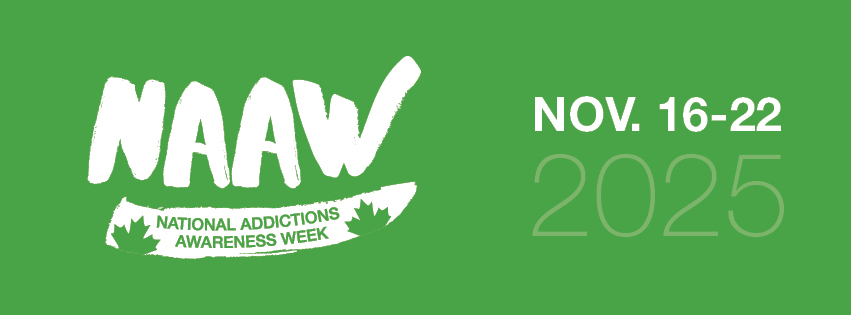Each year, National Addictions Awareness Week highlights solutions that help address the harms related to alcohol and other drugs. From November 16–22, Canadians are invited to learn more about prevention, harm reduction, treatment, and recovery.
Accessing substance use treatment is rarely a straightforward journey. But for individuals with Fetal Alcohol Spectrum Disorder (FASD), the path can be even more complex. Significant barriers prevent many people from accessing life-changing care. That’s why taking an FASD-informed approach – especially at the entry point to treatment – is essential.
What is FASD?
FASD is a disability that affects the brain and body of people exposed to alcohol during fetal development. Individuals with FASD may experience challenges with impulsivity, decision-making, memory, and planning, which impact their ability to access substance use treatment. These challenges are often overlooked or misunderstood, which means that the path to substance use treatment can become increasingly difficult without the proper understanding and support.
Unintended barriers to treatment
Many individuals with FASD face obstacles to accessing treatment programs. These barriers may be explicit (like the exclusion of people with an FASD diagnosis from programming) or underlying. Many times, these barriers are unintended and come from a lack of recognition or realization of the challenges that people with FASD face.
Barriers may include:
- An individual’s previous experiences of discrimination or racism in other healthcare field;
- Eligibility requirements that exclude certain groups of people;
- Challenges navigating the entry process due to brain-based differences.
These factors, especially in combination, often means people with FASD are left out of receiving essential support for substance use.
Starting strong
Being able to start strong at the intake process requires support. People with FASD can struggle with memory, decision-making, and planning. Navigating the entry process can be challenging, when it involves lots of paperwork to fill out and people to speak with. People with lived experiences emphasize how important having a support system or person is to success. This could be anyone within that individual’s circle of care, friend, family member or anyone with experience and knowledge of FASD.
This support person can work alongside the person with FASD to help understand paperwork, assist with appointments, or make phone calls. They can make the difference between someone starting the process and not. Knowing that there is someone in your corner willing to help and willing to understand sometimes makes all the difference.
Opening doors to more equitable access
Utilizing an FASD-informed approach isn’t solely about awareness; it also requires action. We encourage service providers to work together to make their programs and services more accessible. This also involves being hands-on and monitoring intake processes to make the system more responsive to the needs of those with FASD. When changes are rooted in flexibility and having a better understanding of brain-based differences, it can have a huge effect on the service provided.
Support during the intake process, inclusive policies and reducing barriers such as wait times, alleviating administrative burden and more are all part of the framework that will make substance use treatment plans more FASD-informed. Our online course, Substance Use and Treatment in FASD, provides the right tools and guides to take influential action. This National Addictions Awareness Week, we encourage you to take a step in the right direction towards making programs and services more inclusive and effective for individuals with FASD.
